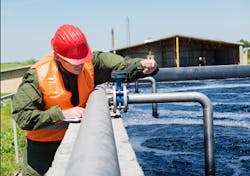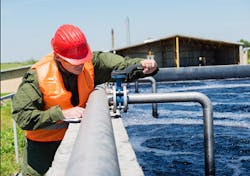National policy is needed to drive water reuse in India, says PwC
NEW DELHI, India – Government intervention at a national and local level is needed to help develop water reuse schemes across India, according to a new report.
In PwC knowledge paper - “Closing the water loop: Reuse of treated wastewater in urban India” – the organisation said there is a need for developing wastewater reuse as a sector.
Water stress has become a perennial concern in most Indian cities. India is expected to add approximately 404 million new urban dwellers between 2015 and 2050.
This rapid urban growth will be linked with higher industrial output and greater energy demand, thus adding to the urban water stress. Institutionalising the reuse of treated wastewater can help utilities in addressing this challenge in an effective manner.
Such a situation warrants utilities and the government to ensure optimal use of available water resources while duly addressing the social, economic and commercial considerations, the report said.
Ranen Banerjee, partner and leader public sector and governance, PwC, said: “The wastewater sector will be driven by government initiatives based on which the implementation models will be designed. Hence, sound policy and regulatory interventions by the central and state governments are a prerequisite for the launching of innovative reuse projects. Government interventions will need to focus on incentivising the use of reclaimed water and developing institutional support mechanisms.”
To promote reuse, the central and state governments should jointly issue a national wastewater reuse policy with clear policy targets, setting out the legislative, regulatory and financial measures needed to achieve those targets, PwC added.
Furthermore, the Ministry of Environment and Ministry of Water Resources should together define quality norms for different grades of industrial water which will help standardise design of reuse systems nationwide. National level norms for water safety planning and risk management are also needed to build credibility for reclaimed water as a reliable alternative.
PwC put forward three forces that are propelling the business case for reuse of treated wastewater in India.
· Water security: At present, this issue ranks high in the minds of policymakers in India with several cities facing water crises
· Reuse of treated wastewater is getting strong support from government policy. It is an important element in the ambitious plan to clean up the River Ganga, a flagship initiative of the ruling government (Clean Ganga Mission), and is also included in other urban policies and their related funding streams
· By signing the Paris Agreement on climate change in April 2016, India has signaled its concern for the sustainable use of natural resources. Water reuse fits well with these broader environmental goals, helping, as it does, to conserve scarce resources and to promote efficient use.
###
Read more
How to grow a billion dollar business, from India

